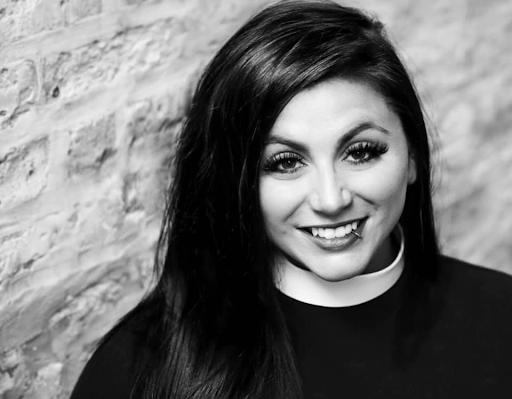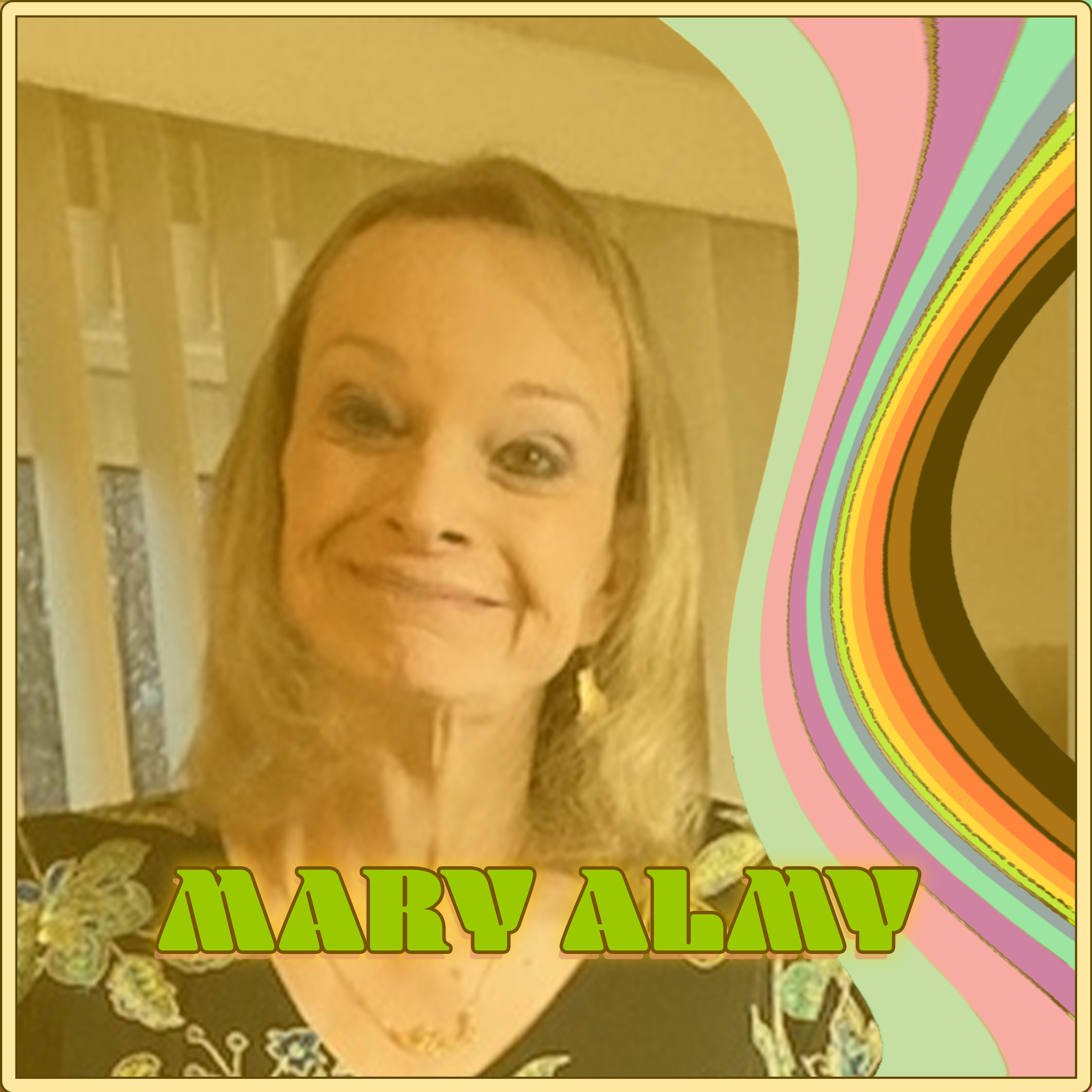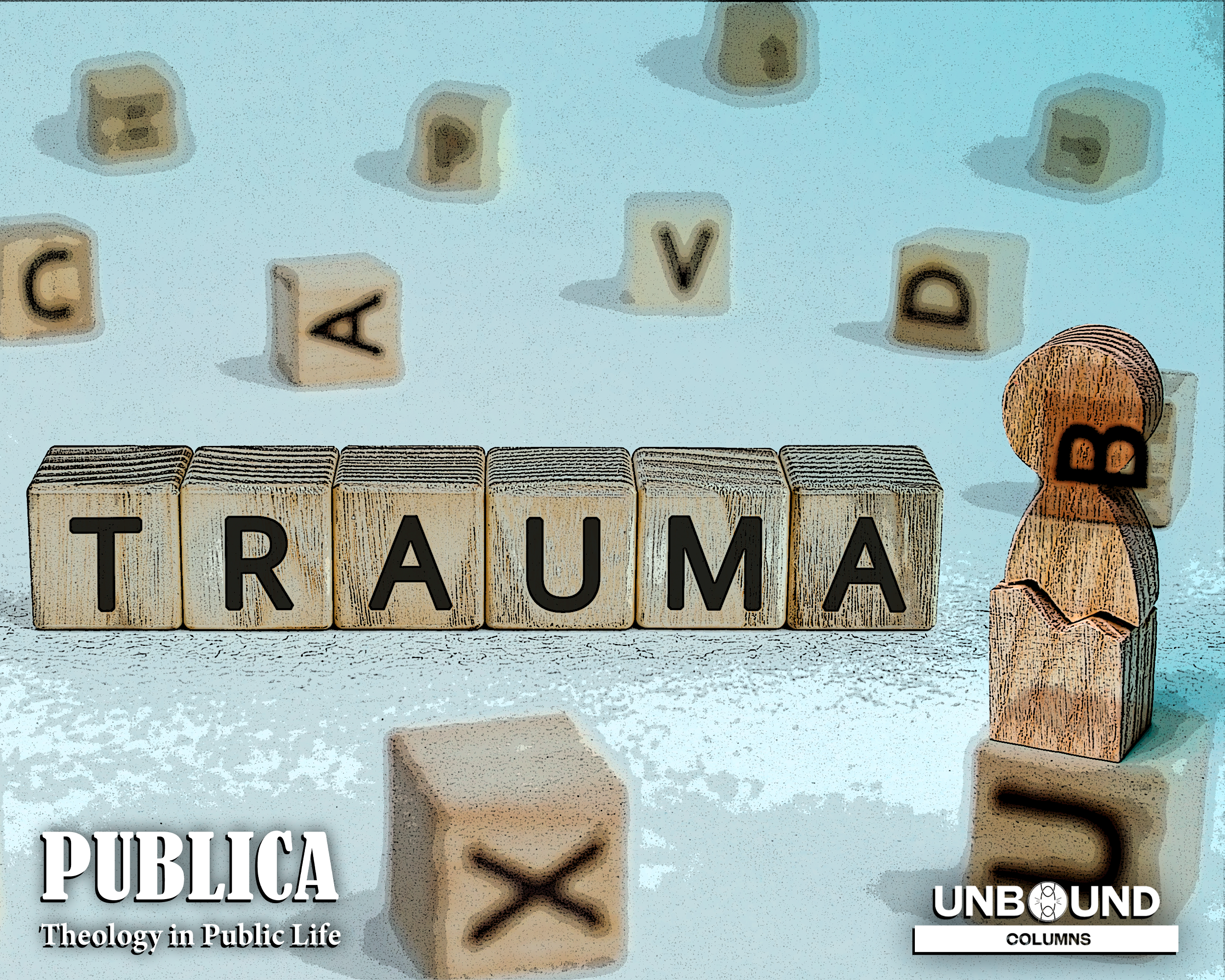A lot of people ask me why I still talk so much about being a bisexual woman even though I ended up married to a cisgender man. It’s a common thing that happens; society often defines people’s identities based on the identities of their partner. It is an obvious, observable aspect of my life which makes it easy to make assumptions. But who I am is so much deeper than the gender of who I married.
I spent my entire life queer. I grew up feeling constantly on the outside, different than my peers, and unsure why. There are a lot of reasons for that, but looking back it is clear that one major reason is because I was different than my straight peers. I was bisexual. This experience of feeling on the outside deeply formed me. It made me question myself at times, because my own denial was disorienting. It caused me to spend a lot of time in my inner world, daydreaming. It birthed in me an urgent tug towards solidarity with other people who are oppressed or feel alone. It made me angry. It gave me a hunger for justice that would only be satiated by our collective liberation.
So my experiences growing up as a queer child and teen impacted me for the long haul. These experiences formed my politics. They shaped my worldview. They impacted my theology and the way I view scripture. The experiences of erasure and invisibility gave me a drive to know myself and be seen. The experiences that I had with other women forever changed the way I operate in relationships, regardless of the gender of my partner. They affect how I have view sex, how I raise my children, my sense of humor, the media I consume. These experiences continue to affect every part of me.
Growing up in a midwestern suburb, my primary queer experience was one of intense loneliness. In my high school at that time, it wasn’t part of the culture to come out until you graduated. Then, maybe in college, some rumors would filter back about people, many of whom were always “suspected” to be LGBTQIA+ but for various reasons, had spent years vehemently denying it. So there wasn’t a queer community for me when I was young. But despite this unspoken social code, and despite my deep denial about my identity, I kept searching for this place to belong. In stereotypical bisexual fashion, I joined the newly formed Gay Straight Alliance as a “straight ally,” something that is practically a rite of passage in bisexual circles. I was grasping for any way to understand myself, to find other people like me.
In college, I took an elective called Lesbian Studies, taught by a self-proclaimed dyke (many LGBTQIA+ people have adopted slurs like this as a form of subversion and resistance). This professor and I didn’t have much in common. She was a GenX dyke. I was a high femme bi woman with deeply internalized biphobia. As part of our class, we were expected to journal each week in response to the readings. But this course was different from many of my other classes because in these journals we were pushed to be self-reflective. Eventually with all of this reading and reflecting I had no choice to admit it to myself. I wasn’t straight.
This professor could have dismissed me. The cis-hetero patriachy spends a lot of energy trying to pit bisexual women and lesbians against each other. But instead, she gently prodded me forward, nurturing my own self discovery, giving me courage. I first came out in that Lesbian Studies class. My professor brought me a cake. She said everyone should get a cake when they come out.
This was my first real glimpse of queer family. Not only did I experience it in class, but also in the pages of our assigned readings. My self was nurtured by so many LGBTQIA+ people, past and present; some fictional, some flesh and blood. But all very real to me.
Once I graduated and moved away, the loneliness crept in again, even though I was married to an amazing, supportive partner. I spent a lot of time in my head, wondering if I still counted, wondering if I was queer enough. I worried that claiming my own identity would somehow cheapen the identities of real LGBTQIA+ people. I still believed a lot of the tracks playing in my head, implanted by a society that at once hypersexualizes and erases bisexual women. Sometimes I wondered if bisexuality was even a real thing.
In 2014, I began working in St. Louis, and only a few months after I started, Black teenager Michael Brown was shot and killed by white police officer Darren Wilson. His death re-ignited a movement as hundreds of first time activists poured out their front doors in response. I joined these protests, and in many ways, they transformed me. One notable transformation was through my experience with queer family.
In St. Louis, the activist community is very queer. Many of the activists I admire most are part of the LGBTQIA+ community. As I spent more and more time in this community, my feelings of loneliness and isolation disappeared. In my experience, the antidote to internalized bi-phobia is community. Each time I hung out with queer people I had met at the protests, or went to queer coffee shops and hang out spots, I felt less alone. When those old feelings of doubt would creep in, when I would worry that I was an imposter or otherwise “didn’t count,” the queer people in my community were quick to correct and validate me.
“I mean, I am not like really queer like you,” I would say. And each time, they would give me a quizzical look and respond with something along the lines of,
“You are queer enough.”
“You count.”
“Your identity is valid.”
“You are one of us.”
One particular instance, I sheepishly admitted that I didn’t “look queer,” and one of my friends said to me, “I knew you were queer the moment I met you. I could tell. But even if I couldn’t tell, you look queer. Because you are queer. And this is how you look.”
LGBTQIA+ people have a gift born out of tragic necessity. When we are lonely, misunderstood, or cast out, we form communities of nurture, families of choice. In my own life, this new family I found in my LGBTQIA+ siblings nurtured my identity and helped me grow into myself. It healed my wounds. It taught me self love through community care.
As a mother and as a faith leader and activist, I have carried this truth with me, with gratitude. On the foundation of the validation I received from my community, I have endeavored to pay it forward by validating others. I have tried to recognize people who are erased, believe in people when they can’t yet believe in themselves. I have tried to be one piece of the antidote to loneliness. I have remembered the words that healed and nurtured me. I have carried those words with me in my heart. And because of them, I have strived to be a person whose words help empower people to grow into their truest, freest selves.

Elle Dowd (she/her/hers) is a bi-furious recent graduate of the Lutheran School of Theology at Chicago and a candidate for ordained ministry in the Evangelical Lutheran Church in America. Elle has pieces of her heart in Sierra Leone, where her two children were born, and in St. Louis where she learned from the radical, queer, Black leadership during the Ferguson Uprising. She was formerly a co-conspirator with the movement to #decolonizeLutheranism and currently serves as a board member of the Euro-Descent Lutheran Association for Racial Justice, does community organizing in her city as a board member of SOUL, serves on the Clergy Advocacy Board for Planned Parenthood, writes regularly as part of the vision team for the Disrupt Worship Project, and facilitates workshops in both secular conferences and Christian spaces. She is publishing a book with Broadleaf, Baptized in Teargas, about her conversion from a white moderate to an abolitionist which will be released on August 10 and is available for pre-order now.
Elle loves spending time with the people she loves and on weekends when there isn’t a global pandemic, she tours the city of Chicago in search of the best Bloody Mary.
To get in touch with Elle and to keep up with updates, you can visit her website www.elledowd.com and subscribe to her newsletter. You can also see her online ministry via Facebook.com/elledowdministry or follow her on Twitter/SnapChat/Insta @hownowbrowndowd or on TikTok @elledowdministry. And pre-order her book Baptized in Teargas: From White Moderate to Abolitionist here https://bit.ly/2YICjBf



Unbound Social